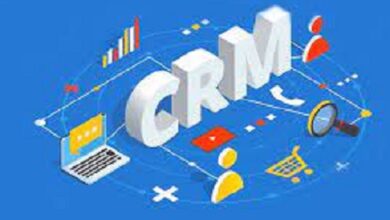Corporate learning management systems its Types and benefits
LMS
The Corporate learning management systems (LMS), translating into Portuguese the Learning Management System, in practice, is nothing more than a software that aims to create content, organize enrollment and manage courses and online training. In this sense, it can be used both in basic education and in corporate education.
In addition, the LMS system has resources for evaluating the performance and monitoring the evolution of students. Thus, managers and leaders are able to have a better understanding and be more effective in choosing the appropriate qualifications for each employee profile.
Types of Corporate learning management systems
As mentioned, currently, the LMS is widely used in education and also in the corporate sphere. Now, let’s get to know each type of LMS platform better on the market.
1-Content Management
Delivering quality content is the main focus of an LMS platform. Through it, it is possible to insert content such as: videos, audios, PDFs, animations, links, HTML pages and other e-learning materials .
Also, some LMS systems allow the company to create personalized and rich content, in a simple way, not requiring great knowledge in technology on the part of managers and leaders.
2-Tests and research
In order for management to obtain solid data on the opinion of employees regarding the training and courses offered, in addition to the understanding that they are actually learning the content covered, most LMS platforms rely on tests and surveys.
These questions are typically applied dynamically, via multiple-choice, true or false, or numerical answers, providing a better user experience.
3-gamification
Gamification in companies has gained more and more space, as it is a people development methodology that provides knowledge in a practical way.
That’s because gamified training can generate situations that simulate the organizational routine in an interactive and immersive way . Thus, the collaborator absorbs the content more clearly.
In addition, gamification allows interaction with other team members, increasing motivation and engagement, in addition to strengthening the business culture, retaining the best talents .
4-Web conferencing, chat and forums
So that there is good interaction between employees and instructors, even at a distance, the learning management system also offers communication channels, such as chats and forums to answer questions about specific content.
In addition, the LMS has video calls that provide real-time meetings and workshops through not only the computer, but also notebooks and tablets.
5-classroom management
With an LMS platform, managers and instructors can, in an optimized way, control the frequency of classes and test results performed. In addition, it is possible to create an event schedule with extracurricular activities, forum closing dates, among other management , so that everyone is aligned with the requirements of each training in one place.
6-e-commerce
Today, companies that want to remain in the market already understand the need to produce educational content not only for their employees, but also for their external audience.
Therefore, through an LMS platform, it is possible to offer a rich catalog of courses for free or paid so that anyone interested in the area in which the organization operates can acquire new knowledge, increasing the brand’s strength in the market.
7-Issuance of certificates
In addition to absorbing and sharing knowledge, it is also important that the user has proof of the content they have acquired. That’s when certificates come online.
Through a certificate of completion, the student can prove that they have actually completed all stages of the course or training, in addition to serving as extracurricular hours.
Thus, with the help of an LMS platform, the company is able to automatically issue personalized certificates visually and with the necessary information for them to be valid in the market.
Corporate learning management systems benefits for company and employees
Within companies, the LMS is a powerful tool for training and developing employees, in addition to contributing to the individual development plan (PDI) , increasing the retention of talent.
That’s because it can be integrated with a people management tool . Thus, the HR sector, together with managers and leaders, after mapping the behavioral profile of employees and separating them into groups, can define the learning path in a personalized way so that each one can improve their strengths and improve their weaknesses .
In addition, with most companies implementing home office work as a way to protect their human capital , they now see how remote work can bring many benefits to the organization and quality of life for employees. But knowledge cannot be left behind if the company wants to have a high-performance team.
Therefore, the LMS reduces training and course costs that previously required renting physical space and purchasing materials, in addition to allowing them to be performed remotely from the most varied electronic devices and at a better time, according to the routine of each employee .
Furthermore, the system allows for large data storage in one place, for example, in a cloud. Thus, the company eliminates paper and Excel spreadsheets once and for all, leaving all employee data better organized and accessible.




